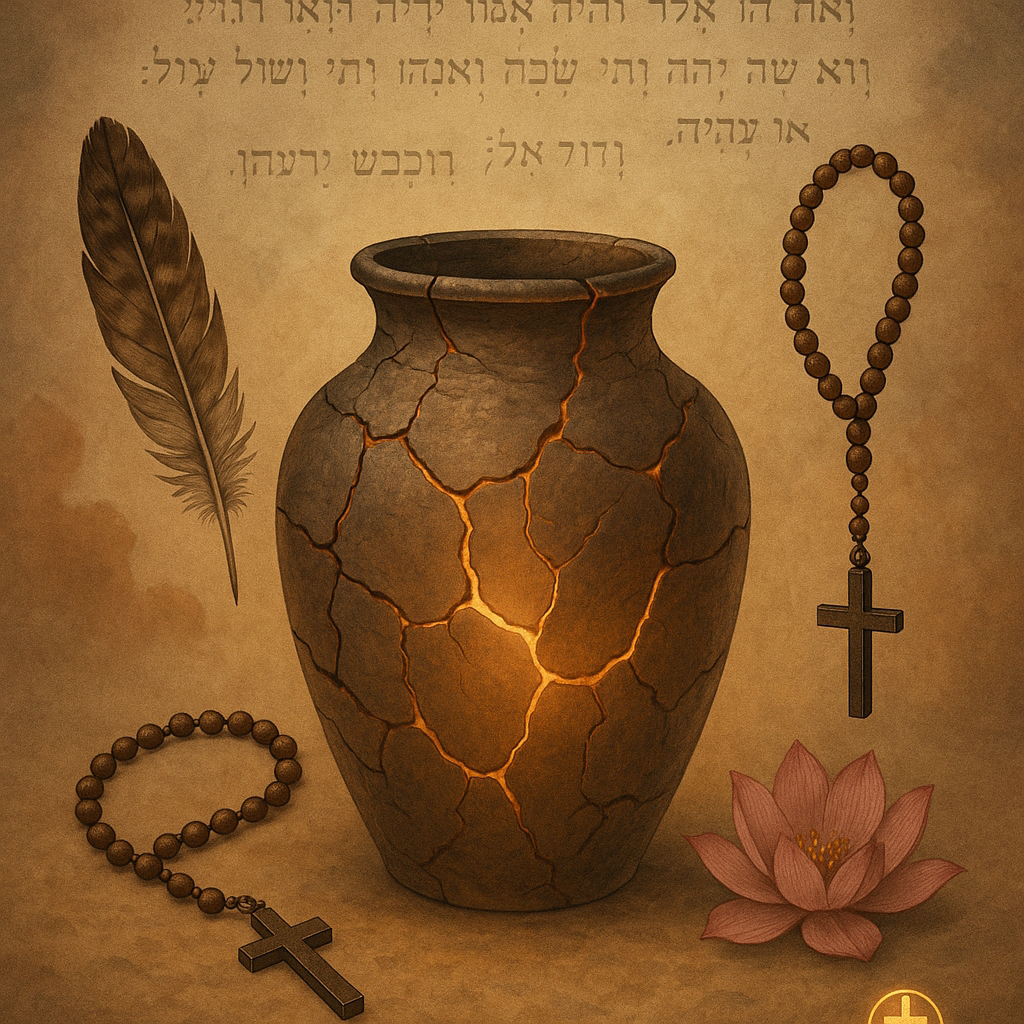🙏🏼🙌🏼📿🛐🤲🏼
Heavenly Abba, we come before You as we are, wounded, wondering, and yet worshiping. You are the Elohim who sees in secret, who hears even the wordless groans of our hearts. As we open this message, may the Ruach Hakodesh guide us into truth, comfort, and renewed faith. Let Your light shine through even the darkest chapters of our lives. In the Name of Yahusha, amen.
📜📖 Lyob (Job) 6:2–3
> “Oh that my grief were thoroughly weighed, and my calamity laid in the balances together! For now it would be heavier than the sand of the sea: therefore my words are swallowed up.”
📖 Lyob (Job) 7:17–18
> “What is man, that You should magnify him? And that You should set Your heart upon him? And that You should visit him every morning, and try him every moment?"
📌 🕯️ Symbolism of the Broken Pot
In ancient Mesopotamian museums, we find clay vessels shattered and mended, displayed not as failures but as history, survival, and beauty through fire. Job is like such a vessel. Though shattered, he becomes the testimony.
🪔 Symbolic Visual: A cracked clay jar, glowing with firelight, not discarded, but honored. 🌍 A Global Cry of the Soul
,From the grieving rituals of the Mohegan tribe to the mourning songs of Polish Catholic grandmothers, and the chants of Buddhist monks, humanity has always cried out when life becomes too heavy to carry alone.
(IYOB's)-Job's lament is not weakness; it is sacred. Even in Islam, crying to Allah in hardship is a form of trust. In the African Amadlozi tradition, mourning is how the living speak with the ancestors, And (IYOB)-Job is speaking with Elohim, raw and unfiltered.
🗣️It is not rebellion to ask Elohim “why?” ~it is relationship. The righteous may break, but they do not fall away.
(IYOB)-Job teaches us that even silence from Elohim is not absence. He sees. He tests. He still holds. Philosophy & Sociology Tie-In; Sociologists remind us that grief, if not expressed, becomes cultural silence. Philosopher Søren Kierkegaard wrote; “The most painful state of being is remembering the future you WILL never have.” (IYOB)-Job teaches us that even crushed dreams become offerings when laid at Elohim's feet.
Modern Application📢👏🏼You may be like (IYOB)-Job right now; judged, isolated, misunderstood. You may have friends like Eliphaz who speak but do NOT see you. But Yah knows your frame. He remembers you are dust. NEVERTHELESS sacred dust, shaped by divine breath.
🆑📕Closing Reflection; 🌬️ The wind may blow, yet the root remains. Even when your soul is tired of praying, let your silence be your song. Yahusha, the suffering Servant, understood Job’s cry and He echoes it on the stake when He says: “Why have You forsaken Me?”
In the end, Yah restores. Still today, this chapter reminds us; the cry is part of the covenant.
🙏🏼🙌🏼🛐📿🤲🏼
Abba Yah, strengthen every broken heart listening today. Let those who feel abandoned know that You are still present in the silence. Give courage to the misunderstood, grace to the weary, and divine comfort to those who mourn. Heal us, hold us, and hear us. Even in our complaints. We trust You even when we don’t understand. Halleluyah and amen.




No comments:
Post a Comment